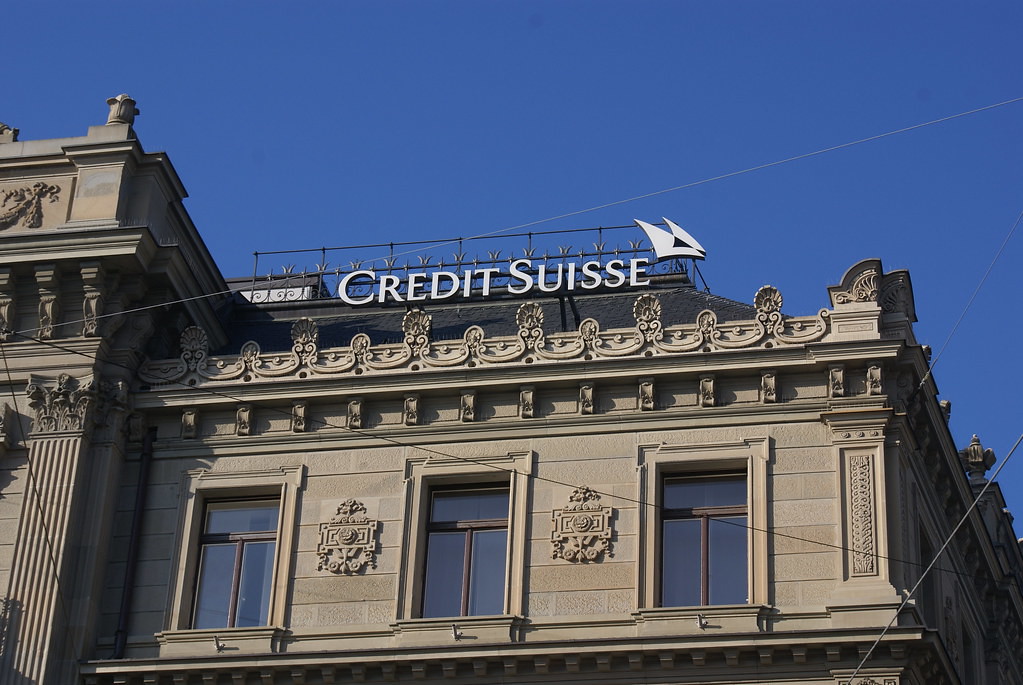In response to a Prachatai inquiry made as a part of the Suissecrets collaborative media investigation project, the Thai Revenue Department declared that they had no information about Thai taxpayer holdings in Swiss banks.

Credit Suisse logo in Zurich (Source:flickr/alex.ch)
Sommai Siriudomset, a Department spokesperson writing on behalf of the Director General, stated in the letter that the information that Prachatai requested was “not in possession or under the control of the Revenue Department at all.”
On 14 January 2022, Prachatai sent a letter to the Department requesting information on Thai taxpayers who, over the past decade, reported on bank assets they held in Switzerland, a country well known for banking secrecy.
The 28 March response came two and a half months after Prachatai submitted the inquiry and almost a month after the Suissecrets investigation was published around the globe.
Suissecrets is a collaborative journalism project utilising Credit Suisse bank account data leaked by an anonymous source to the German newspaper Süddeutsche Zeitung (SZ). The paper made the data available to the Organized Crime and Corruption Reporting Project (OCCRP) and 46 other media partners on 5 continents. Prachatai is OCCRP’s partner in Thailand.
The study revealed that Credit Suisse maintained accounts on behalf of a number of people investigated for criminal and financial wrongdoing. The list included individuals linked to authoritarian regimes and human rights abuse cases.
What is Suissecrets? Everything you need to know about the Swiss banking leak
Suissecrets: Media sheds light on scandalous Swiss account holders
Examples cited by OCCRP and SZ include a Yemeni spy chief known for his brutal interrogation methods; a financial backer of Zimbabwe’s former president Robert Mugabe, and Venezuelan bureaucrats linked to the country’s economic crisis.
In Thailand, a rich foreigner alleged in the Panama Papers to have used an offshore company to evade over US$250 million in taxes was found to have Credit Suisse accounts listing Thailand as his domicile. Another individual on the list was discovered by the International Consortium of Investigative Journalists (ICIJ) to be acting as the director and intermediary for two companies in the Seychelles Islands and Cyprus, places well-known for offering tax incentives to encourage business registration.
The report does not appear to contain any scandalous revelations about Thailand’s Credit Suisse account holders. OneThai national on the list has already been convicted of fraud.
Others include affluent people from a wide variety of backgrounds: well-known business people in the jewelry trade, hotel and real estate magnates; owners of construction supply companies; trade association leaders; former high-level civil servants; elected and junta-appointed politicians with business backgrounds; and business people who back politicians.
Having an offshore bank account is not illegal in itself. There are legitimate reasons to have one. Offshore accounts can be used to facilitate international transactions and investment. Moreover, certain types of tax evasion are commonplace and not necessarily illegal. Much is left to the conscience of taxpayers.
Prachatai English is an independent, non-profit news outlet committed to covering underreported issues in Thailand, especially about democratization and human rights, despite pressure from the authorities. Your support will ensure that we stay a professional media source and be able to meet the challenges and deliver in-depth reporting.
• Simple steps to support Prachatai English
1. Bank transfer to account “โครงการหนังสือพิมพ์อินเทอร์เน็ต ประชาไท” or “Prachatai Online Newspaper” 091-0-21689-4, Krungthai Bank
2. Or, Transfer money via Paypal, to e-mail address: [email protected], please leave a comment on the transaction as “For Prachatai English”
